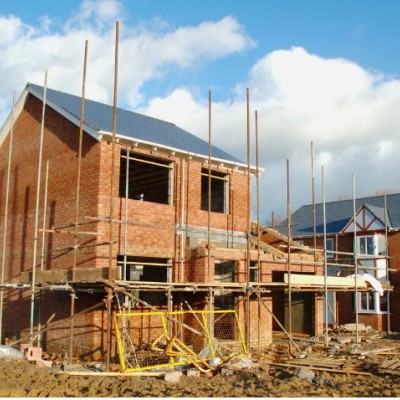2024: What landlords should watch out for

2024 will be a year to watch for landlords, especially those self-managing, as there are likely to be many changes and new announcements which will affect the way landlords operate.
We have a budget to look forward to in March and there is set to be a General Election at some point during the year. So, as the Conservatives push ahead with their plans for reform of the private rented sector, landlords need to be aware of what could be on the horizon if Labour comes to power in 2024.
What will affect your finances?

Mortgage rates
A big concern for landlords at the moment is the cost of mortgages, which tend to move up and down in line with the Bank of England base rate. This can be greatly influenced by the rate of inflation, as we’ve seen over the past two years.
Currently, it looks as though inflation is falling steadily and the base rate has peaked, having hit 5.25% in August and remained there since. Capital Economics (CE) predicts that inflation will drop to 2.4% by the end of 2024 and as low as 1.3% by the end of 2025. In turn, CE expects the base rate to drop to 4.75% next year – significantly lower than the 5.1-5.2% that others are forecasting – before reaching 3% in 2025.
If those predictions are right, it’s possible that average mortgage rates could drop by around 1% next year, to 4-5%. And as lenders’ confidence in the economy improves and they continue to compete for business, hopefully 5-year fixed deals may become much more attractive. That will help existing landlords who are remortgaging and should encourage some much-needed new buy-to-let investment.
For existing landlords, especially those with multiple dwellings, the increase in average capital values since the start of the pandemic may have significantly boosted equity. If you haven’t had your dwellings valued recently, it’s well worth doing so now, as you may be able to remortgage and use some of that equity to make some new investments. Make sure you secure an accurate valuation from a qualified agent as online tools will be too generic for investment valuation purposes.
Tax
In terms of tax, there’s good and bad news. Some landlords could benefit from Class 2 National Insurance being scrapped and the rate of Class 4 contributions falling from 9% to 8% in April. However, the current freeze on Income Tax bands and the Personal Allowance means that those landlords who have managed to raise rents by more than their costs have increased, could be paying tax on a higher proportion of their income.
If you’re planning to sell property in 2024, the tax-free allowance for Capital Gains is halving again in April, dropping from £6,000 to £3,000 – although this isn’t a huge burden. It will cost 20% taxpayers a maximum of £600 extra and higher-rate tax payers up to £1,350, which shouldn’t make too much of a dent in the profits you’re likely to have made over the years.
The final thing to consider that could affect your finances is the cost of administering any changes that come in during the year. For instance, if Section 21 is scrapped, new rental agreements may need to be issued.
What will affect property deals?
The forecasts are that 2024 will be a similar market to this year. Prices are predicted to keep falling, but at a slower rate of between 2% and 4.7%, while transaction levels are expected to stay at around the 1m mark, around 200,000 lower than the long-term average. That means well-capitalised investors who can offer motivated sellers a quick deal, should be able to find some bargains – and cash buyers will be king!
While most areas are likely to be a buyers’ market, certainly in the first part of the year, things do tend to pick up each spring, so we may see a busier market with more competition between March and May. However, we don’t yet know what might be in the Chancellor’s Spring Budget that could change confidence and affect both finances and deals.
And if the General Election is announced for the Summer or later in the year, the sales market may slow right down again, as people who don’t have to move wait to see what the outcome might mean for them. In that case, those who are able to buy could benefit from there being much less competition for the dwellings that are out there.
Will rents rise or fall?

The outlook for the rental market is good. Most forecasters expect strong rent growth to continue, although at a slightly lower rate than we’ve seen over the past couple of years, as both inflation and wage growth calm.
Having risen at above the rate of inflation this year (ONS data), average UK rents are predicted to grow by 5%-6% in 2024, with the five-year outlook being cumulative growth of around 20% or even slightly more. So, if inflation settles back to around the 2% mark from 2025, there’s good rental profit potential for landlords.
At the same time, the Government’s financial boost for those on the lowest incomes should mean landlords are at less risk of their tenants falling into arrears. From April next year:
- Local Housing Allowance will be increased to cover the lowest 30% of local rents, giving around 1.6m households an average of £800 a year in extra support
- Benefits in England and Wales will go up by 6.7%
- The minimum wage will increase by just over a pound to £11.44 an hour for those aged 21+
With the gap between contract-holder demand and suitable available rental stock likely to continue to widen, landlords who can offer good quality accommodation in the best areas should do very well in terms of occupancy and rental income over the next few years.
What could change about the business of letting?

Material information
The only thing that is definitely set to change in 2024 is the ‘material information’ that has to be provided in property listings for both sales and lettings.
Over the past few years, the National Trading Standards Estate and Lettings Agency Team (NTSELAT) has been working on new guidance for sales and letting agents, which also applies to landlords who carry out their own marketing.
Part A of the guidance came into force in May 2022, requiring all dwelling listings to include the price/rent, council tax and tenure. Then in November 2023, Parts B and C were published, with Part B requiring information to be provided about the dwelling type, construction type, number and type of rooms, utilities and parking. Part C relates to issues that must be disclosed if the dwelling is affected, including building safety, restrictive covenants, planning permission, development proposals and flooding.
So, if you use an agent to market your rental dwelling, make sure you have provided them with any of this information that they might need in order to comply with the guidance. And if you advertise your property yourself, check the NTSELAT’s helpful guide to make sure your listing is accurate. It is expected that the changes will be reflected on all property portals by the end of 2024.
If you have any questions or concerns about any of these changes, our lettings experts are always happy to help. Find your local branch here.
Looking for advice?
If you're looking to let or sell your property, we can help. Get in touch with your local branch or book in for a property valuation.

Contact Us
Got a question, general enquiry or something else?
You may also like
Since we started in 2001 we have grown to three branches across Cardiff, we can save you time and money by offering a range of services and expertise under one roof.



